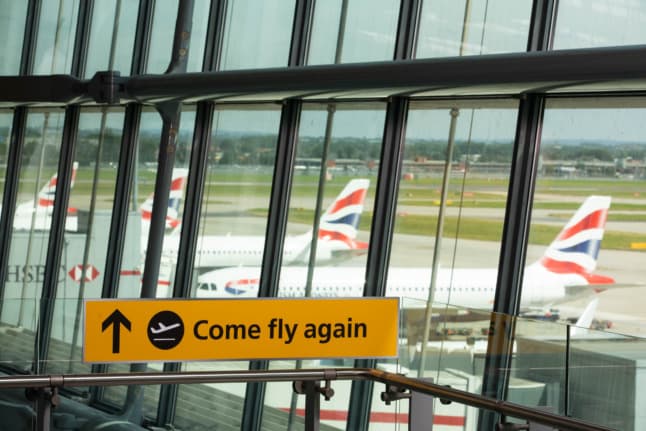What's going on?
On December 30th the RKI announced that the UK would be coming off its virus variant list this week.
From Tuesday, January 4th, the United Kingdom was downgraded from virus variant area to high-risk area, making it easier for Brits to return to their homes in Germany in the new year, and reopening the possibility of tourist travel between the two countries.
With the highly transmissible Omicron variant taking hold in the UK in the run up to Christmas, Germany's Foreign Office opted to place the country on its virus variant list on December 20th, effectively banning non-essential travel and imposing an obligatory two-week quarantine on all entrants from the UK.
However, with Omicron now spreading rapidly in Germany, authorities have concluded that it no longer makes sense to ban travel from the UK and the seven African nations currently on the virus variant list.
Instead, the eight previous virus variant areas will join countries like Spain, Portugal, Italy and the USA on the high-risk list and be subject to much looser travel rules.
READ MORE: Germany to remove UK from virus variant list on Tuesday
I travelled before Tuesday or am already back in Germany. Do I still have to quarantine?
Anyone who came back to Germany before Tuesday had to quarantine until midnight on Monday, when the country was officially removed from the virus variant list - unless, of course, your two weeks of self-isolation was up before that date.
From Tuesday, however, the rules switched to those of a high-risk area, meaning people who are vaccinated will be exempt from having to quarantine and can carry on as normal - if they submitted proof of being fully vaccinated or recovered during the online register process.
Advertisement
For unvaccinated people, it gets a little more complicated. If you're unvaccinated and have travelled from a high-risk area, you generally have to quarantine for 10 days, but this can be shortened to five with a negative test taken on the fifth day.
If you were in quarantine for five days or more by the time Tuesday rolled around, you can take a test and - provided it's negative - end your quarantine immediately.
If you hadn't quite done five days by January 4th, you'll have to wait until day five to take your test and end quarantine. Or, if you don't want to take the test, you'll have to complete the full 10 days.
What do I need to do before travelling?
Once again, that all depends on whether you travelled before or after January 4th. If you travelled before, you had to follow all of the rules for returning from a virus variant area.
That means filling in the Passenger Locator Form and submitting a negative PCR test before departure. Since non-essential travel was banned, you should also have had to prove that you lived in Germany and are returning home. Once in the country, you had to head straight to your accommodation and quarantine until at least Tuesday.
Advertisement
If you travelled on or after Tuesday, you should still fill in a Passenger Locator Form and upload a negative test (if unvaccinated) or proof of vaccination and recovery.
As we mentioned above, you'll be exempt from the self-isolation requirement if you're vaccinated against or have recently recovered from Covid.
If not, you'll need to quarantine for at least five days - or 10 without a further negative test.
What else should I know?
Keep an eye on the situation because it can change quickly. We recommend checking with your airline before travel because they could have further requirements like a PCR test - even if Germany doesn't require it.
Keep up to date with Germany’s ‘virus variant’ and other ‘high risk’ countries by checking the Robert Koch Institute (RKI) list, which is updated regularly.
There are some exceptions to having to fill out the entry form, testing and quarantine. This German government page has detailed information on the exemptions in English.

Join the conversation in our comments section below. Share your own views and experience and if you have a question or suggestion for our journalists then email us at [email protected].
Please keep comments civil, constructive and on topic – and make sure to read our terms of use before getting involved.
Please log in here to leave a comment.